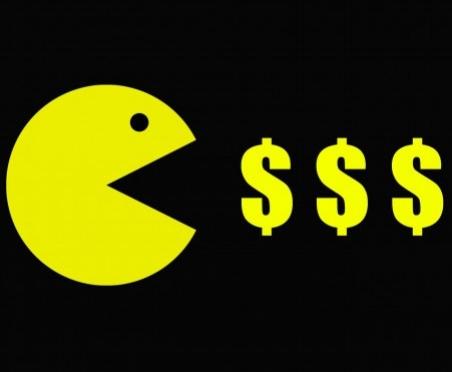The gaming industry is an ever-fluid one. New ideas constantly rupture the status quo, from motion controls to virtual reality, and higher resolutions. Innovation has found a home in video games, but not all ideas turn out to be the greatest. Many ideas get left behind at the cutting room floor, and many conventions that are widely used today cause many consumers to roll their eyes.
One contested trope that has arrived in recent years and continues to grow in prevalence are microtransactions. Whereas in the past, consumers would purchase a game at full price and have all content available to them, companies have started putting out games which are free to download, but hide key parts of the game behind paywalls. Characteristics like artificial timers to complete tasks or random loot drops can hinder a player’s progression. But with a swipe of a credit card, these boundaries can be bypassed. These games have been dubbed “freemium” games and have proven to be a massive moneymaker.
While a pay-as-you-go scheme may work for a free game, some developers have been quietly putting these practices into play in their triple-A titles. Huge gaming companies like Blizzard, Nintendo, and Microsoft routinely put out games with downloadable extra content. Many of these practices have been seen as harmless, as they are additional content that is not necessary to enjoy the full game like aesthetic changes to your avatar. Recently, however, Electronic Arts, who has won “Worst Company in America” on a consumer reports poll in 2016, has released a game that takes microtransactions to the next level, and consumers are up in arms over the decision.
The highly anticipated “Star Wars: Battlefront II” is a game that has something for everyone.
Hectic sci-fi firefights, space battles in iconic ships from the movies, and the addition of lightsaber wielding heroes and villains make this game a huge improvement over the lackluster first installment. However, all of these additions, accompanied with bar-raising graphics and gameplay, have been tarnished with a new leveling system. This system requires players to earn credits to spend on beloved characters like Luke Skywalker and Darth Vader. The system in and of itself is fine, but the trouble arises when you begin to do the math to find out how much work is required to gain these credits.
A website dedicated to Star Wars games did a breakdown of the how long it would take to unlock everything in the game, and that total was calculated to be about 4,500 hours. This is on top of the base price of $59.99 that players spend on the game in the first place. To make things worse, all of these unlockables can be had earlier by purchasing in-game credits for real life money. In order to unlock all content monetarily, this will cost about $2100.
Once consumers began playing the game, the backlash was almost immediate. Many gamers took to reddit to voice their opinions.
One thread titled “Seriously? I paid $80 to have Vader locked?” amassed 155,000 points and even caught the attention of EA themselves. Their response, which currently has -673,000 points, the lowest on the site, states that the company is aiming to “provide players with a sense of pride and accomplishment for unlocking different heroes.” The comments following this response criticize EA for making the game too strenuous on the player, saying that many people will opt to purchase the unlockables before they earn them through gameplay.
Since this backlash, thousands of customers have purchased their pre-orders in an effort to stop this business practice. CNBC reports that EA stock is down 8.5 percent, which equates to $3.1 billion in shareholder value.
The game’s sales were far lower on Black Friday and Cyber Monday, with Battlefront II selling 61 percent less than it’s predecessor. In response, EA has announced that they will rework the leveling system, and have removed the option to buy credits with real money until they have a better idea of how to move forward.
This response is a clear message to developers and publishers: gamers do not want to be stuck behind paywalls for their content.
With any luck, a line has now been drawn in the sand as to what consumers are willing to put up with. Hopefully in the coming months we will get that Star Wars game everyone pre-ordered in the first place.



































